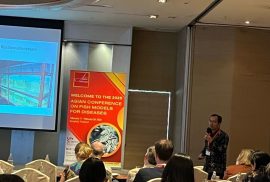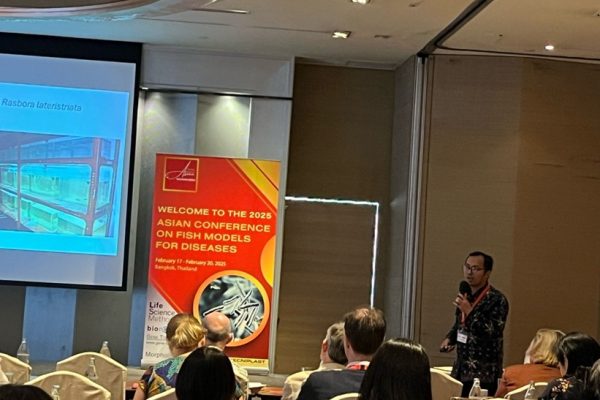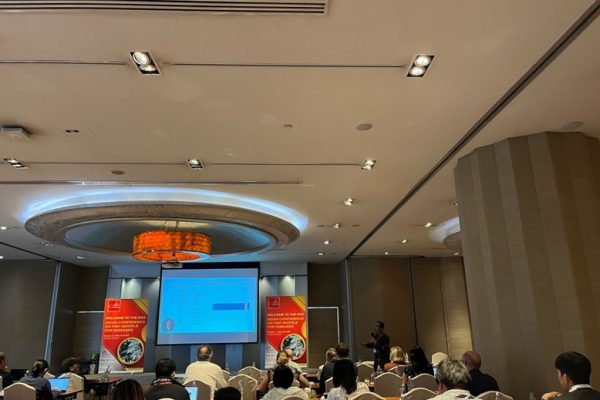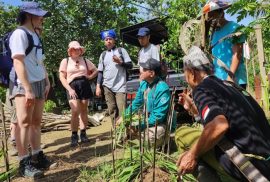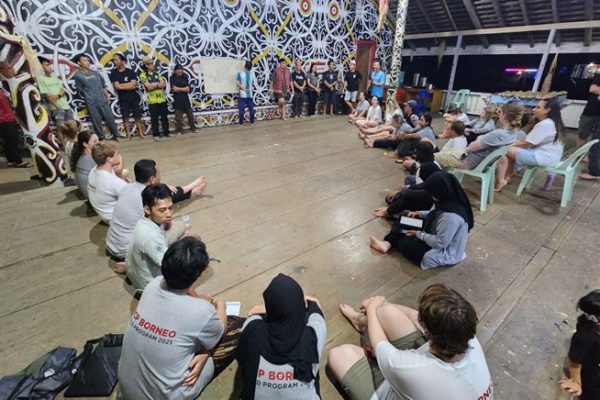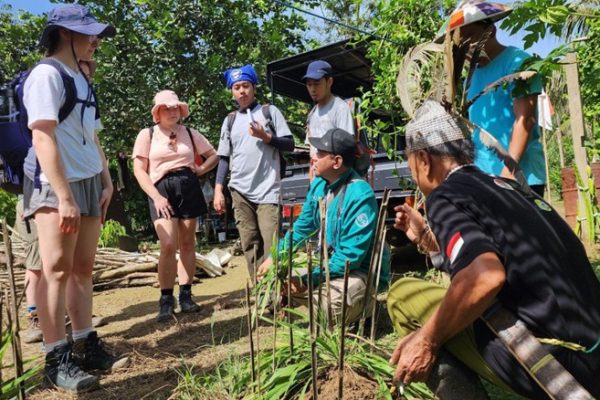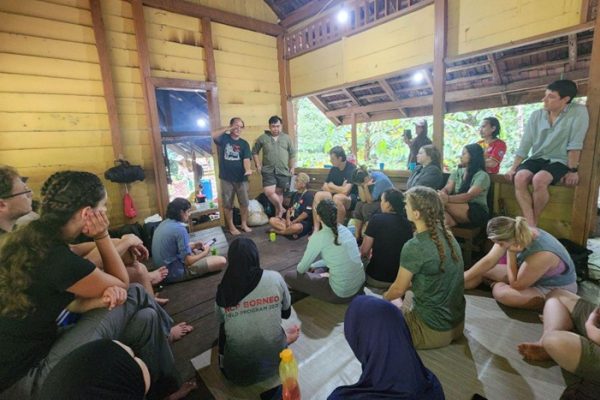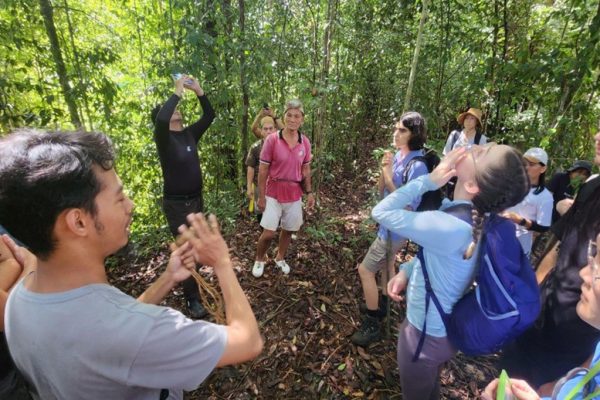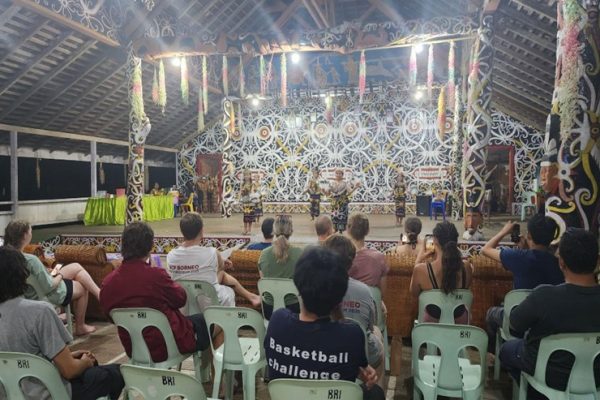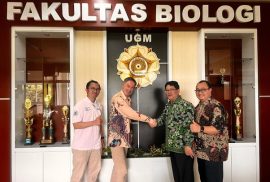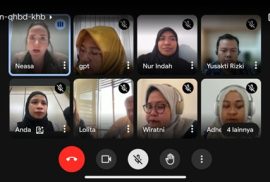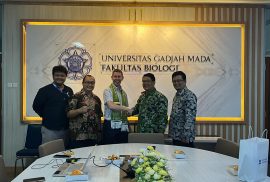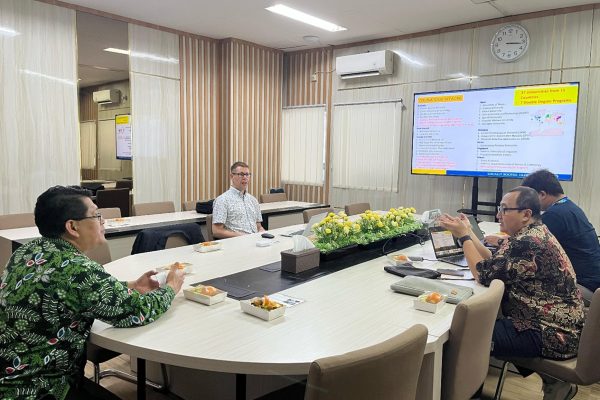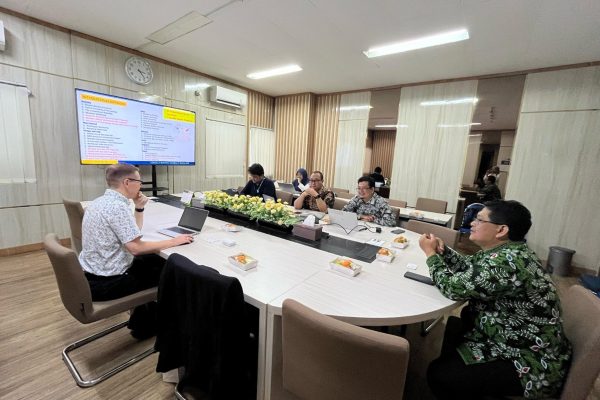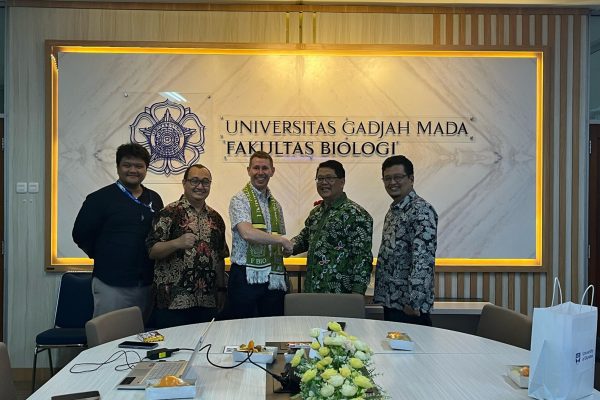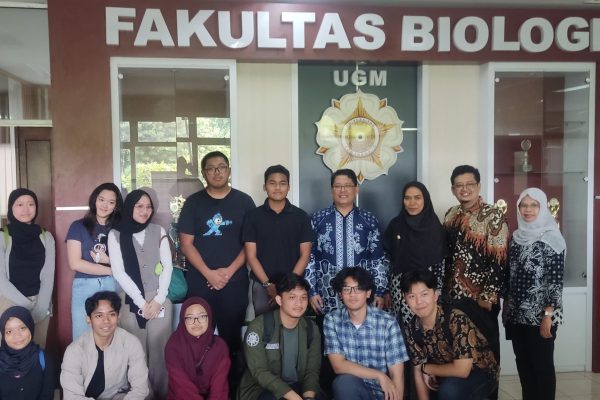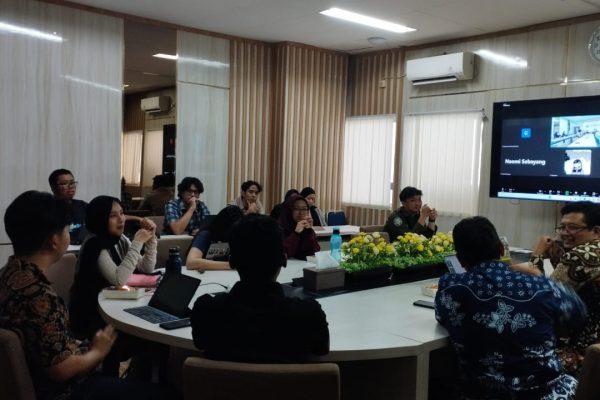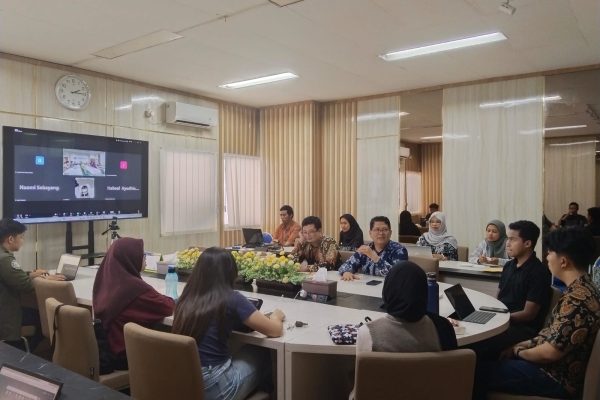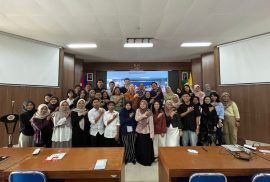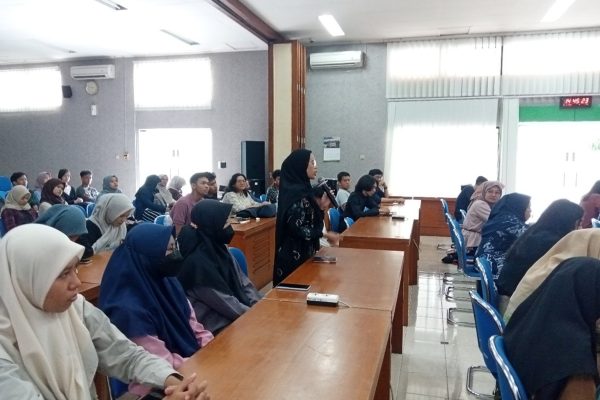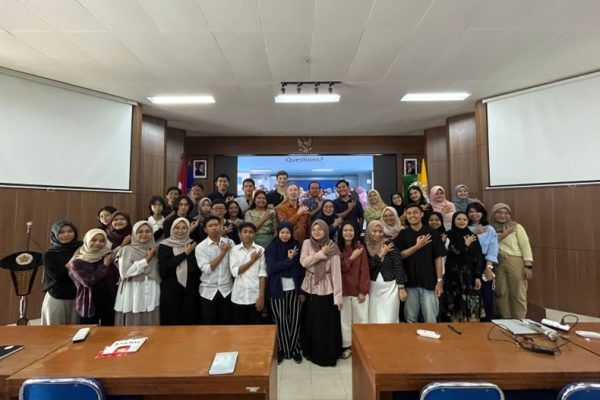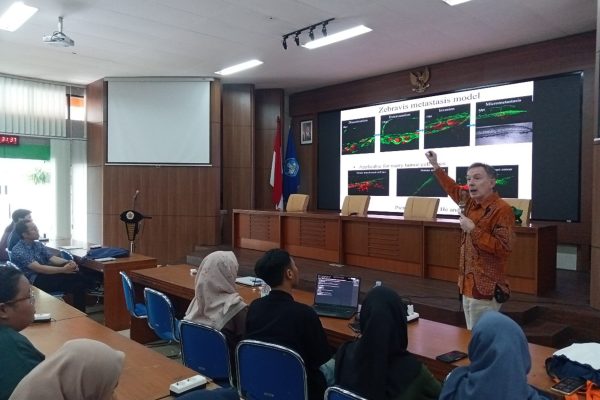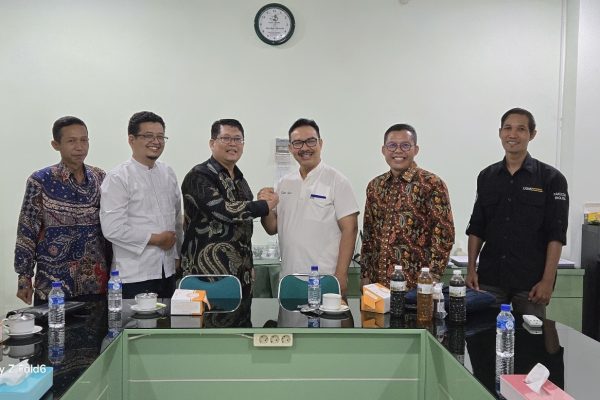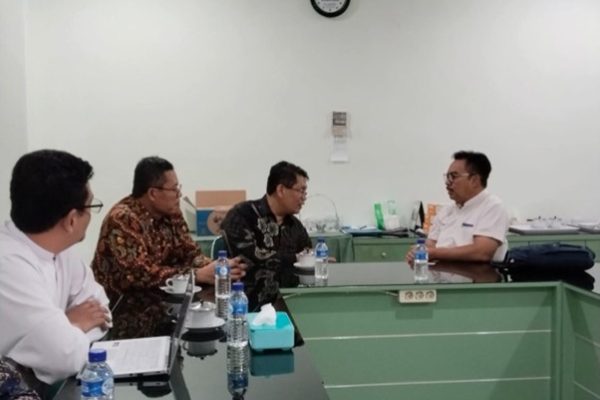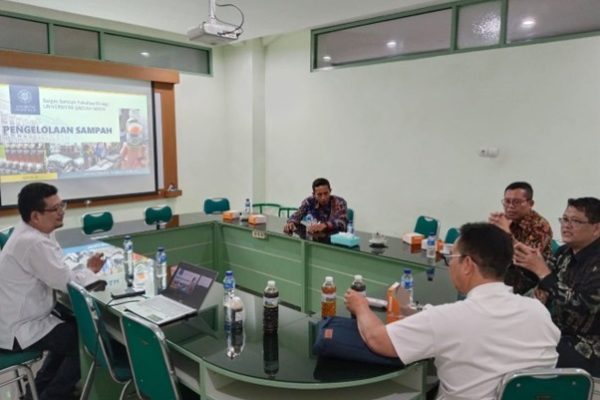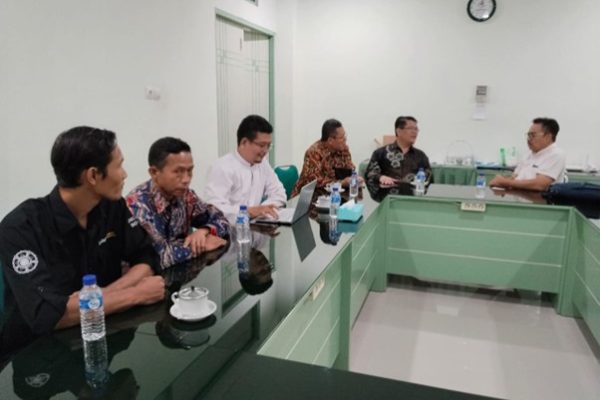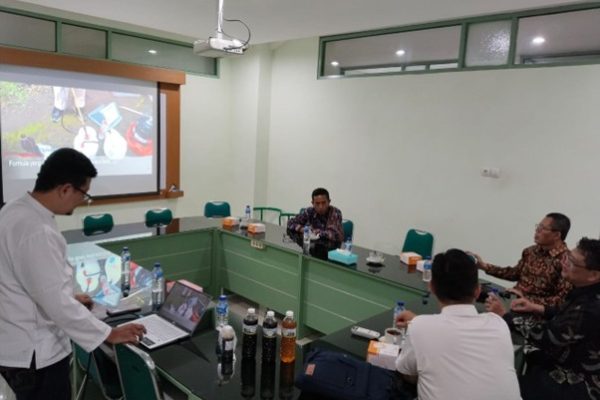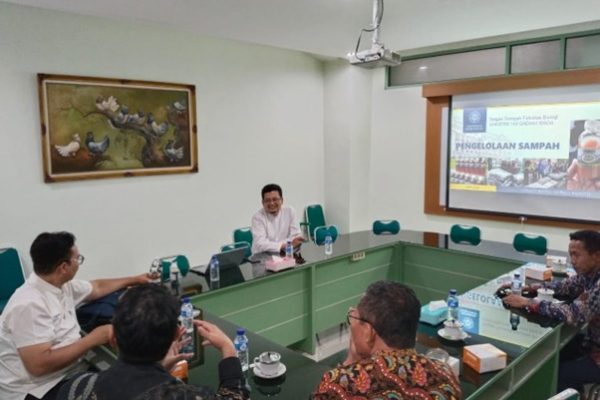SDG 17 : Build Partnerships for the Goals
This initiative contributes to the achievement of the United Nations Sustainable Development Goals (SDGs), specifically Goal 8: Decent Work and Economic Growth and Goal 12: Responsible Consumption and Production.
Dr. Rury Eprilurahman led herpetofauna identification sessions and delivered a herpetology sharing session on January 29. On January 30, local guides introduced participants to useful plant species during a trek through riparian and hilly zones. That evening, an ethnobotany discussion was held between ISC participants and the local community.
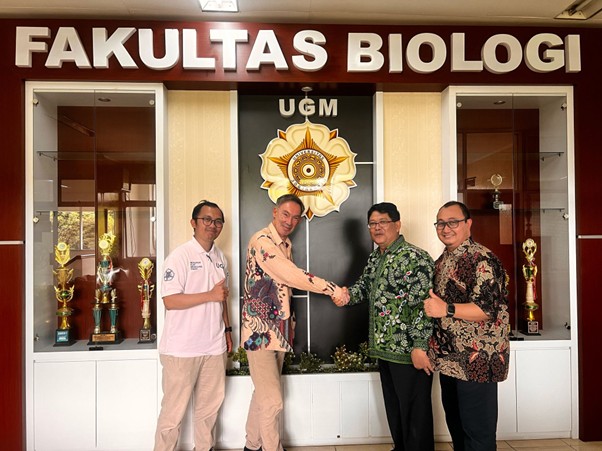
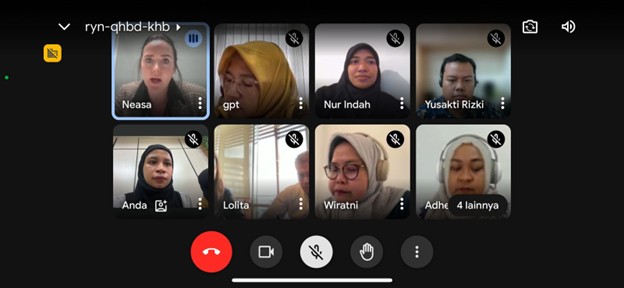
Yogyakarta, February 13, 2024 – The Faculty of Biology, Universitas Gadjah Mada (UGM) held a release ceremony for the participants of the Sakura Science Exchange Program 2025 in the Yamagata University, Japan, on Thursday, February 13, 2024. The event, which was held in a hybrid manner, was attended by a number of faculty leaders, staff, and student participants of the program.
The Dean of the Faculty of Biology UGM, Prof. Dr. Budi Setiadi Daryono, M.Agr.Sc., in his remarks conveyed the importance of maintaining the good name of Indonesia and Universitas Gadjah Mada in front of the program participants. “Students are representatives of Indonesia and Universitas Gadjah Mada. During this program, you are asked to always maintain a disciplined attitude, be punctual, and help each other as participants. This is important to reflect the values upheld by UGM,” he said.
During this period, the Faculty of Biology UGM sent 16 students, consisting of 8 students who received scholarships and 8 students who were self-funded. The departing students will take part in training at Yamagata University and get the opportunity to learn more about Japanese culture. During the program, participants will be accompanied by Vice Dean for Academic and Student Affairs, Prof. Dr. Bambang Retnoaji, M.Sc., and guidance from Prof. Jun Yokoyama, who will guide them while in Japan.
The event was also attended by the Head of the Undergraduate Study Program, Sukirno, M.Sc., Ph.D., OIA Manager, Nur Indah Septriani, M.Sc., Ph.D., and the Coordinator of Academic and Student Affairs, Emi Dwi Suryanti, M.Sc. along with staff and students participating in the program.
The Sakura Science Exchange Program 2025 is an important opportunity for students of the Faculty of Biology UGM to develop their knowledge and skills through international collaboration and introduction to the rich Japanese culture.
With this program, the Faculty of Biology UGM hopes to continue to strengthen international cooperation, open wider learning opportunities, and form students who are ready to contribute at the global level.


